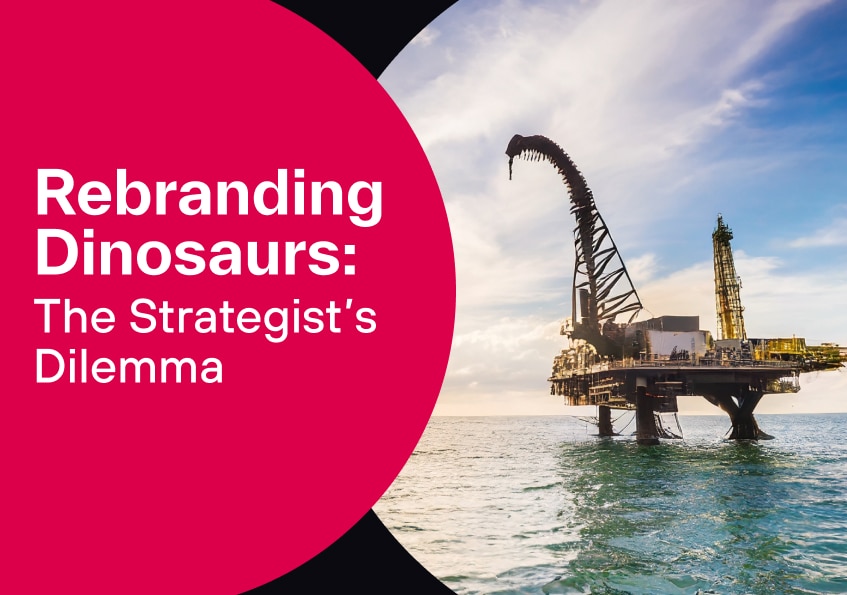How Businesses Can Create Shared Value by Going Beyond Compliance
CEOs and business leaders,
When was it ever in your nature to accept the standards of others? Would you and your organisation have achieved the successes of today had you done so?
To comply with sustainability standards is exactly that – following the benchmarks set by others when, in fact, they’re far from adequate for what businesses, societies and the planet need to survive and thrive.
Of course, regulation plays an important role in setting minimum requirements and determining a base level of responsibility for businesses. However, compliance with the rules is simply ‘business as usual’. This is no different from meeting audit requirements, and any brand hoping to differentiate by merely complying will be disappointed. To build real distinction from peers, we must push well beyond the horizon of compliance and begin to think of these new value creation possibilities today.
For businesses to thrive, there are substantial benefits to pushing past the base level.
Injecting energy and creativity into your organisation, as it reimagines its business models and value propositions, will create a renewed sense of pride and purpose amongst all staff.
Aligning with customers the world over who are demanding that businesses be cleaner, fairer, and more supportive will create deeper and more trusting relationships
By increasing brand value and profitability, because customers are willing to pay a premium for products and services that share their values, your business will benefit, as will society and the environment.
These are just some of the fundamental ways in which embracing sustainability can offer unprecedented opportunities to innovate and unearth untapped value, powering new levels of success into the future.
To find value in sustainability, businesses need to make it part of everything they do and say, infusing it into all facets of their decision-making, operations, product development, and marketing. It requires a paradigm shift from short-term goals to a forward-looking vision that can yield long-term value for all.
How do we begin?
With this five-step roadmap:
1. Align your organisation’s purpose with its sustainability priorities.
If they’re not, or if you don’t have a clear purpose or priorities, embark on a strategic process that identifies your core competencies and points of differentiation. Determine how you create shared value and impact—and more—how you articulate all of this as a distinctive and unified brand.
When Unilever says they want to “make sustainable living commonplace”, it’s not just a piece of advertising. It’s a purpose that serves as their ‘North Star’ guiding every part of their business, from sustainable and regenerative sourcing, to selling through local SME retailers to help them upskill and grow.
2. Align senior management to your purpose and sustainability priorities.
Train your board in these important principles and why they will lead to better and sustainable value creation, beyond compliance. Make sustainability a board agenda item and empower them to lead the business with this ethos deeply instilled in them.
3. Foster a culture of sustainability within the organisation.
Explain these values to your people and why they’re important to the business, and everyone they serve, including their own careers. Create a compelling employer value proposition, then begin a change management journey that defines and aligns everyone with the kind of actions and behaviours that demonstrate your purpose and beliefs.
4. Collaborate with peers in and out of your industry.
We’re dealing with global issues that can’t be solved overnight, so when businesses come together, an entire industry can move in the right direction. Identify areas where you’re weak and enter into partnerships with strong shared value. Accelerate positive change by sharing knowledge and best practices. The automotive industry has a long history this.
In 1959, Volvo opened up their patent on the three-point seat belt, allowing any vehicle manufacturer to use it for free. Making that decision in the greater interest of public safety, it’s estimated to have saved well over a million lives. In more recent times, Tesla and Toyota have shared thousands of electric and hybrid technology patents, making it easier for the industry to adopt new technology and advance society towards cleaner mobility.
5. Walk before you talk.
Make all your actions and decisions transparent and measurable. Whilst some businesses are overclaiming their impact and being held accountable for ‘greenwashing’, some are downplaying or saying little about themselves. Neither are good for progress to take place. When statements are backed by evidence, businesses become truly credible and stand out against the clutter.
Based on the belief that consumers have the right to know what they’re buying, Seventh Generation are championing transparency for ingredient disclosure across the cleaning industry. One of the first homecare brands to disclose all ingredients with plain language on labels, they’ve also worked with like-minded partners and brands to disclose a full list of ingredients typically found in homecare products. It gives consumers the confidence that they’re making an informed choice.
Embracing Innovation and Sustainability in Asia’s Dynamic Landscape
The future of business in Asia isn’t merely about compliance with existing standards; it’s about pioneering new paths, transcending boundaries, and creating shared value for society and the environment. It requires a bold, innovative approach, one that aligns sustainability with every facet of an organisation’s identity.
Asia, being ‘nascent’ relative to other markets where standards were originated and officialised, offers an unparalleled opportunity to lead. The opportunity to make a statement for the brand by going above and beyond at this time could be especially significant in light of recent criticisms regarding environmental damage in Asian countries.
The five-step roadmap outlined here is more than a guide; it’s a call to action for CEOs and business leaders in Asia. It’s an invitation to rethink business models, engage with sustainability at every level, and drive change that will shape the future.







